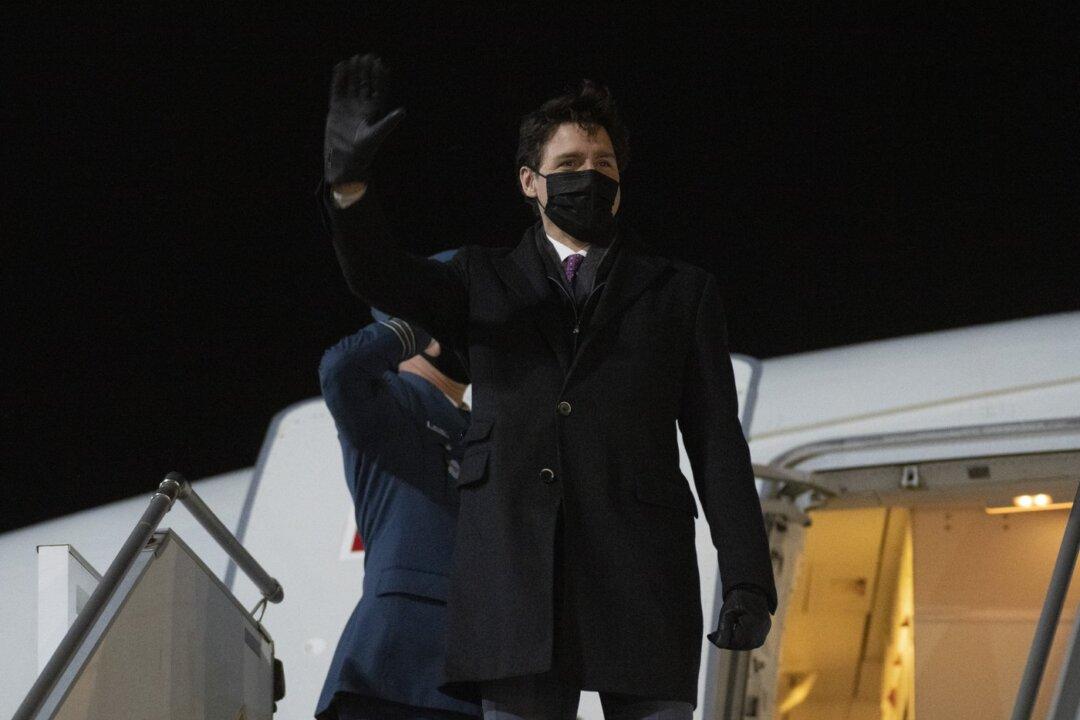Prime Minister Justin Trudeau arrived Tuesday at one of NATO’s military bases on the Russian border after telling three Baltic leaders that Canada will stand with them to fight the Kremlin’s war on Ukraine and its cyberattacks on their countries.
“You are literally on the front lines of this challenge with Russia,” he said earlier Tuesday in the Latvian capital of Riga.





